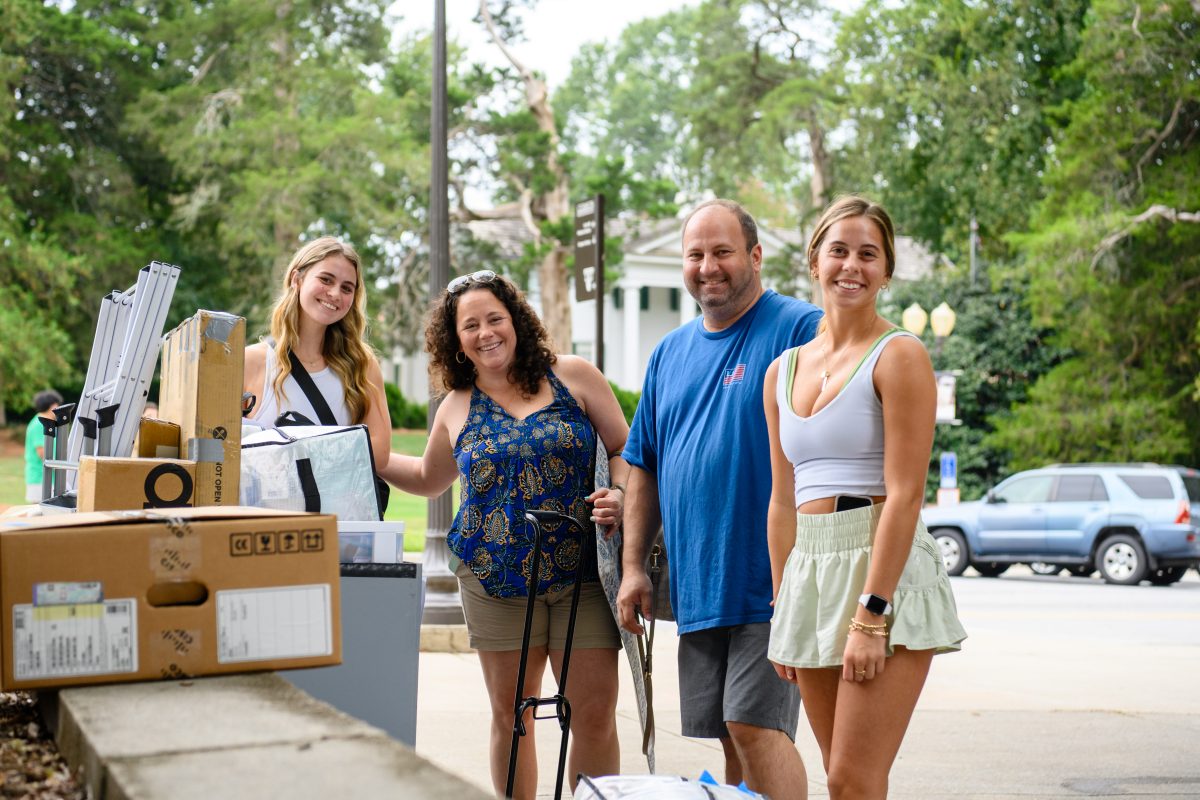Moving out of your home and into college is a liberating experience for students. It’s no surprise that many of us look forward to college move-in day months in advance, longing to step out of our parents’ realms of control. However, this strive for independence that students feel is more often than not juxtaposed with the longing for dependency parents experience, causing empty nest syndrome or a phenomenon of similar effects.
Empty nest syndrome is characterized by feelings of grief and loss when children leave their homes for the first time. This experience can cause many different emotional responses depending on parental situations, ranging from boredom or stress to depression.
This emotional turmoil is not something that is a defined medical condition, however, many parents experience sadness and loss when children leave for college or move out of their homes. Though not all parents experience this psychological stress, it is common for parents to feel it when a child or all of their children leave the house.
Some experts argue that empty nesting is nothing more than rumors and repeated stereotypes over time. For some adults, the sense of freedom that students experience in their time away from home is mirrored by parents’ new opportunities for personal time with children gone. This idea is not without significant support from researchers looking to debunk this phenomenon.
Empty nesting has the influence of strengthening marriages and allowing parents the opportunity to enjoy their hobbies more frequently, according to Jeffrey Arnett in Psychology Today.
The loss of children living in the home often intensifies feelings that parents were having prior to their children’s move out. So, if parents really enjoy spending time with their children, they will experience more amplified versions of grief, but if parents are looking for more time with their spouses, they will find strength in their newfound freedom.
Even so, “98% of parents said that they had felt ‘extreme grief’ after their child had gone to university for the first time,” according to a survey in 2021.
The more common turnout of empty nesting still seems to bring a feeling of grief and loss in children’s absence, and there are many factors that could contribute to this outside of just children leaving home.
The age that parents are when children leave the house is also the time when parents begin experiencing or thinking about menopause, retirement, general redundancy or the death of a spouse, according to Better Health.
There are many stressful factors that parents are experiencing while their lives shift from what they have been used to for the last 18 years. It makes sense that they often feel uneased by an empty house and children that are states or cities away.
Though this time at college is a first taste of independence, it is not fair to forget those who helped you to get here. Keeping in touch with loved ones does not come at the expense of your freedom; it just comes with the benefit of peace of mind for empty nesters back home.
Many students keep in contact with parents on a consistent basis: 41% of students communicate with their families daily, according to research by College Esp.
However, 85% of current families want weekly communication, and 40% of families want to be more involved in their students’ experiences at their institution, according to the same research.
Though students often keep mindful contact with their parents, it is essential to incorporate their feelings and troubles into context and give them a call or send pictures every once in a while. This time in a parent’s life can be difficult for a plethora of reasons, so don’t let your absence be another added stress on their plate.
College can also be stressful, so don’t be afraid to call your parents for help or to ask questions. This doesn’t diminish your independence, rather, it helps you learn and opens the phone lines to home.
Going home to visit your families while classes are in session is not a luxury many of us have, which is understandable. However, your presence in the home can still be felt from many miles away with open lines of communication.
Empty nest syndrome may not affect all parents in the same way, but as your move changes your daily life, it changes your family’s daily life as well. Fill them in on your exciting experiences and encourage them to pursue their passions so you can all sail into new chapters of your life together.
Kylie Tutterrow is a junior political science major from Spartanburg, South Carolina. Kylie can be reached at [email protected].











JoAnne Marshall • Aug 23, 2024 at 5:54 pm
That’s my granddaughters, son and daughter-in-law!! Great article, too!!
Thanks!!
JoAnne Marshall